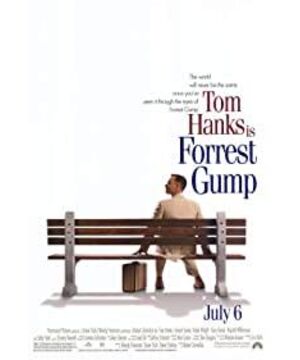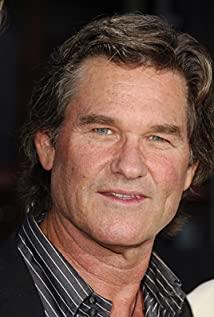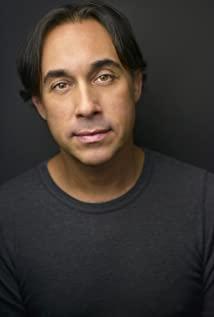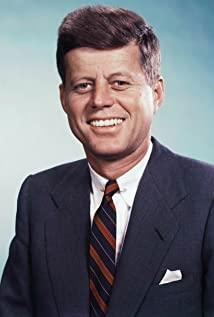It was 1995, and also the beginning of my college years. "Forrest Gump" came with a wave of multiple Oscars, and it was a tumultuous moment. Now, after many years have passed, when I look back at this movie, it has indeed taken on quite a different look.
What is the era in 1995? In my opinion, this year has different meanings for me and for the country, and, more importantly, this meaning is not as marked as the ten-year Cultural Revolution or reform and opening up. To a certain extent, it is very similar to the undercurrent of ten years ago, but this undercurrent has characteristics that are quite inverse to those of 1985. In 1985, nearly ten years after the Cultural Revolution, the confrontation between the old and the new has reached a delicate situation. At the beginning of this decade, it had strong rebellious characteristics, and it was not even qualified to be called the "era of reflection". At this time, literature and art always acted as a pioneer, and its representative is of course the so-called "scar literature." The "renaissance" of literature and art is often followed by the "enlightenment" of ideas. Many people may think that the latter grabs theoretical results from the former in a certain sense, which is the continuation of artistic achievements in the field of thought. In other words, art is the "first theme" and "prosperity", while thought is "The second theme" is essentially a "variation" or "reproduction" of the "first theme". Probably many people understand the relationship between the Western Renaissance and the Enlightenment in this way. This is likely to be problematic.
In my opinion, the initial trend of thought certainly has the color of "reflection", but it is often difficult to shoulder the heavy responsibility of "criticism." This is not to say that there were no epoch-making results in the original trend of thought, and that the difficulty in shouldering heavy responsibilities is not specifically attributed to a certain shallowness of thought. The only problem is that if this kind of thinking only stays in its "written form", then its meaning is limited. Perhaps it will be regarded as a "epoch-making great thought" a few years later, but this "epoch-making" meaning cannot be seen at the beginning of its birth. In other words, at the time of its birth, it has Strong theoretical color, not the life of the people. This sentence may soon be misunderstood as a question of "the relationship between theory and practice" in the traditional sense, but it is not the case. What is said here is just this sentence: the people have not yet "read" like that kind of thinking. Their own lives, and therefore their lives, are not what this thought expresses to them.
The completion of civilization of the people is not a process in which a certain theory is instilled into the mind, but a process in which this theory goes out of its "written form of doctrine" and participates in the life of the people. In this process, "history" finally gets its due criticism. This is why Heidegger claims that we are still in the "Hegelian era" and why it is still a kind of "extravagant talk" to discuss the "contemporary nature of Marx's philosophy".
It can be seen from this that the trend of thought that 1985 can provide is far from directly becoming the life of the people. On the contrary, Hegel's so-called "habits of the state" are indeed our lives. Politics must be contemporary, and its participation in people's lives is "direct." The 1985 political textbook reform incident, from today's perspective, did indeed participate in the lives of the people (especially young people) for more than two decades. In 1995, the situation was quite different. Some people in the academic circle regarded what happened in 1992 as the "second spring breeze" (the story of spring) after the Third Plenary Session of the Eleventh Central Committee. After that, it seemed that there was indeed a "mind liberation movement", many of which were in 1985. Questions that cannot be discussed can become topics again. But this is indeed a misunderstanding.
As pointed out in the previous article, the situation in 1995 has the "reverse characteristics" of the situation in 1985. The same is just a kind of ignorance of the time we live in. The ignorance in 1985 may also be attributed to being too "imminent", or a certain kind of uncool "reverse sentiment" caused by too little, but the ignorance in 1995, in Gadamer's words, is more likely to be derived from Yu "withdraws consciously." The suspension of "theoretical issues" is not only embodied in political strategies, but more like a consequence that is generally accepted by the public. As mentioned above, the 1985 strategy has already constituted the lives of the people in 1995 and beyond.
For the self in 1995, it was also an era of "conscious withdrawal". To say "refusal" has seemed thin, because the direct "rebellious psychology" of young people is no longer dominant to me, or in other words, it is no longer a dominant factor in my mental state. In the process of my growth (that is, my "history"), I have already bid farewell to "art and literature"-the superficial feature is the decline in the number of poetry works-and enter "enlightenment". I started to ask the question of "the meaning of life" again. It was precisely at this time that I discovered a vacuum in the realm of thought (first of all, the realm of value). This kind of vacuum stems directly from the suspension of “theoretical issues” in terms of “national” characteristics, but at a higher level, it stems from this “metaphysical decline” era. Obviously, Nietzsche's voice of "literary and artistic color" finally became the life of the people after many years, and with the globalization of capital civilization, the fate of the West revealed by Nietzsche has also been passed on to us. Judging from the situation in China, Nietzsche's encounter with the cultural trends of college campuses in that era was not accidental. But it is more obvious that this "beautiful encounter" only occurred in universities or some intellectuals, and to the wider public, it was still just a kind of "theoretical problem". In 1985, it was not enough to appreciate its main spirit. It was not because of who was dull, but because the strength and scope of the implementation of capital principles was still quite narrow (that is, the results of reform and opening up were only a series of data), and this implementation was in spirit. The development in the field was immediately sanctioned. Therefore, the "exit" in 1995 appeared to be less "conscious" and somewhat helpless. This is just a superficial situation. In its essence, more appropriately, it should be "we consciously withdraw from an era, but this consciousness cannot be seen in the expression of theory." Because of the lack of such an expression, there is currently a misunderstanding of the so-called "economic supremacy", as if the status quo is only a question of "economic strategy".
But it is undeniable that almost all people's withdrawal is "conscious", whether it is the intellectuals or the public. The best evidence is from "all people participating in politics" in the 1980s to "all people going to sea" in the 1990s. For the intellectuals, what is more important is not to fill in some theoretical gaps, but to "speak with economic benefits." What kind of belief is contained in this, or in what sense is the principle of capital, reaching a kind of internal reconciliation within China and even the world, as if it is the primary problem of the current intellectual circles.
In 1995, I still couldn't answer many questions. This is also very natural. I am a young man who has just entered university. My knowledge of myself and even my understanding of philosophy as a discipline has only just begun. At this time, I have made many important decisions (for example, giving up architecture to study philosophy is one of the representative decisions), but obviously I still cannot understand the meaning of my own decisions, so these decisions have not Participation constitutes my "history".
The first time I saw it, I shed tears when Forrest Gump was talking about the monologue in front of Jenny's grave. I would like to think about how Forrest Gump will continue his life from now on. Although he already has a small Forrest, don’t we see that feather has drifted away? This first reaction was quite natural. Although Forrest Gump claimed that he did not run for any grand ideals, in my opinion at the time, without Jenny, his running would be meaningless.
However, starting from the second look, the situation is different. Ever since Forrest Gump ran for the first time as a child, I kept tearing down until the end. At this time, running began to show a different meaning to me. This meaning is not lacking in the initial understanding, but just that I have not "read" to understand the original self before.
In a word, Forrest Gump's running began to have meaning beyond his own purpose. It is no longer purely private behavior, nor is it a kind of behavior based on "private behavior", such as "for feminism, for the environment, for world peace" and so on. But what kind of meaning is that?
Some critics have compared "Forrest Gump" with "The Shawshank Redemption", saying that to understand the former, one must have a full understanding of American history, while the latter surpasses the "family affairs" of Americans. Therefore, this commentary The author claimed that "Forrest Gump" only belongs to Americans, and "The Shawshank Redemption" belongs to the whole world (from this he also concluded that the vision of the Oscar judges is too "American", etc.).
I will not discuss whether we need to understand the history of the United States when we watch "The Shawshank Redemption."
"Knowledge of American history" is not a prerequisite for understanding this work at all. Where is "American history" as knowledge in this work? Did Forrest Gump really trigger the Watergate incident? This work is not just a comic-style deconstruction of "American history", otherwise it is nothing more than "political gossip" or "political black humor" at best. This work contains important insights for the re-understanding of "American history", and this "re-understanding", as mentioned above, participates in the formation of "American history" itself, and in turn, also participates in the formation of the spirit of the times.
In this regard, the people in the film have a process of understanding. They begin to think that Forrest Gump is undoubtedly a lunatic (Run fool), and its madness cannot be more typical than Nietzsche. But later, some of them, probably most people in terms of the audience of the film, began to understand Forrest Gump's behavior. This kind of understanding, needless to say, has little direct relationship with Forrest Gump's personal intentions.
In today’s era, the question of "meaning of life" is not a question of which is right or wrong in the 1980s style (that is, it is not a question of "whether feminism or environmental protection should be the theme of the times"), but is closer to Under the conditions of the current era, how to re-examine or re-evaluate the question of "life meaning", or even the question of "whether it is necessary to raise this question". We have to admit that although this seems to be a problem that is almost unavoidable, how many people have seriously thought about it? At this time, Nietzsche, who asked for "revaluation of all values", could not continue to speak for us, because it seems that the question of "meaning of life" has withdrawn from the general realm. It seems that it is only about "personal choice." There is no need to rise to "all values". The contemporary people secretly judged in advance: to establish a certain "personal value", first of all, cut off its connection with "all values" as the prerequisite. Of course, this ruined view cannot help contemporary people establish a certain value. On the contrary, it makes contemporary people increasingly lose the meaning of existence.
In this sense, the meaning of "salvation" embodied in "Forrest Gump" is obviously not as practical as "The Shawshank Redemption". The protagonist in the latter is not only a "fool", but a "rational economic man" who understands the rules. The approach he took seems to be more "operable", so his "success" seems more "realistic" ". However, I have to say that there is a common misunderstanding here. The "redemption" embodied in "Forrest Gump" seems to be problematic today, but "The Shawshank Redemption" is even more problematic.
First of all, is the success of this rational economic man his "personal" success or the success of capital principles? I am afraid it is the latter. Some people may say, at least that he realized himself with the help of the principle of capital, but is this really the case? He must even give up his real name (and have to exist in the virtual world in order to participate in economic life), only then can he enjoy the sun on the beach of a certain utopia. If this is "self-realization", then he can only say this This idea contains all the frailty and fantasy essence of contemporary people. In contrast, Lieutenant Dan’s salvation in "Forrest Gump" is different. Even if someone thinks that he still cannot "reconcile with God" as Forrest Gump thinks, at least he has found his "Magic leg". Since then, he can at least stand up and live. Some people may question: Didn't he also live this way because he was "good at business" (for example, from catching shrimp to fruit business)? This kind of questioning is not worth mentioning. It is enough to mention two points: First, his "first pot of gold" looks more like a gift from "God" rather than "primitive capital accumulation"; Second, what is even more implied by the verdict is that we probably cannot think that if he "failed in business", he would "get enmity with God" again. His "Magic leg" is probably not just a tangible pair. But looking at "The Shawshank Redemption", what happens if the protagonist fails to escape from prison? The capital principle may still be successful, but what is his personal value? Does it provide a failure example of "not deep enough to master or apply the rules"?
What is really worth asking is: What is the difference between the redemption given by "God" and the convenience of "using rules"? For people who lack Christianity, "Does God exist" seems to be a prerequisite question. Otherwise, where does the "God's salvation" issue come from? But here is not discussing Christianity at all, any more than discussing the so-called "American history". What is being discussed here is the problem of "super-sensitivity field", that is, the problem of "field beyond our experience world". No matter who you hand over this field to deal with, or you have not entrusted it to anyone, you just imaginary it. Put it up. Undoubtedly, the question of "meaning of life" belongs to this particular field. The meaning of life is not a direct question of life experience, so all "knowledge of American history" or even "knowledge of world history" will not help answer this question. On the contrary, at a certain time, we are more likely to think that the meaning of life is just a question that can only be asked after being removed from the normal state of life. But in this way, the difference between the above two is blurred: whether it is God’s salvation or secular rules (such as the laws of commodity economy), relative to a particular “individual”, they are all external. Yes, no one is more credible than anyone else. And because God's will is unpredictable in comparison, and economic laws seem to be difficult to grasp, so the latter is more acceptable.
We must always realize that the questioning of the meaning of "individual" is indeed immediately beyond the narrow position of "individual", but it is by no means equivalent to saying that the meaning of existence is realized by any form of "individual sacrifice".
There is no doubt that in my "history", there will not be any moment in my "history" that understands me better than the present. I saw how I got rid of the "private nature" (or the enlarged "private nature" that is the so-called "national nature") at the time, and from a film like "Forrest Gump", I saw that it was for the entire era It has universal "legislative significance". The curious irony is that this kind of "legislative meaning of class" cannot be separated from a special "person" such as "I" at all or at all.
From the standpoint of Marx, the fundamental problem of reconciliation (or "theoretical problem") within the capital principle itself is just a derivative problem. And what reflects the derivative nature of this problem, first of all, it is not "national habit", but only "personal choice". For example, when I watch a movie like "Forrest Gump", to talk honestly, the first thing that comes to mind cannot be "the future of the country", but "the destiny of the individual." At the former end, it seems that there is no need to say more, that is to say, no matter how you talk about it, the past "history" cannot be changed, and the current trend is irreversible (even if it is not necessary to reverse in the individual's opinion), what is needed It's just "mastering the rules". In terms of our own destiny, we are extremely frustrated, because under the inevitability of the former, we don’t seem to see any connection between the two. Specifically, no matter how powerful the data, we cannot convince us that we live in Such an era is "a sense of belonging", or "happy".
This run of Forrest Gump ran out of all the absurdity of this era. Although this depiction of the absurdity of the times is closer to "literary and artistic" rather than "enlightenment", it is indeed a kind of "enlightenment" in the true sense.
Let us be frank. Various viewpoints that start from pure individuality, even those that elevate this individuality to nationality or even humanity, are the same as positivism aimed at flattening individuality. Using isolated individuals to fight against metaphysics is sure to win sympathy, but it will never succeed. The heroes created by Hollywood, whether they are the president (Harrison Ford) or civilians (Bruce Willis), are all products of imagination. In this sense, we don't need to regard Forrest Gump as a hero of this kind, let alone follow him.
Ignorance of worldly rules (for example, Forrest Gump sees naked Jenny holding a guitar singing and sincerely thinking, "She finally realized her dream"), by no means means pale, on the contrary, it means the presentation of real meaning. Jenny always didn’t understand this at the beginning. Although she cared about Forrest Gump, that caring was more like a kind of general “humanitarian”. When it comes to herself, she relies on Forrest Gump on the one hand. The caring for her, on the one hand, was tired of him repeatedly surpassing the so-called "humanity and worldliness" (for example, she always said to Forrest Gump, you can't always think of protecting me, you can't do this, you can't do that). Lieutenant Dan’s position is roughly the same. When Forrest Gump rescued him, he thought it was a ruin of his grand plan (the so-called "destined"), and if someone said that Forrest Gump was a fool, he would suddenly be angry. . We say that they are all demanding Forrest Gump according to secular rules (whether it is the grandiose of Lieutenant Dan or the predominantly individual or even suicidal like Jennny), but at the same time, they all see themselves in Forrest Gump. They are pale and weak, so their dependence or protection of Forrest Gump is just their care for their souls. This reminds me of the white dragon and the faceless man in Hayao Miyazaki’s "Spirited Away". They are not two people. They are just two aspects of the same person. They are the result of our own division: the white dragon who forgot his name. Isn't it a faceless man? And the faceless man who follows Chihiro with all his heart and protects Chihiro in his own way, isn't it a white dragon? We only saw a body in Bailong who struggled hard in the worldly rules but forgot the meaning, and in the faceless man we saw a spirit who couldn't control the rules and wandered helplessly. We hope to have the skill of Bailong to fight against the world, and we hope that someone will take care of our masterless soul. And Chihiro, precisely while helping the two find themselves, discovered their own meaning.
Similarly, Forrest Gump also helped two people, Jenny and Lieutenant Dan. He is just as unarmed as Chihiro, by no means a hero, Chihiro is a child, and Forrest Gump is a fool. However, in their "practical communication", they fulfilled others and themselves. What Forrest Gump taught Jenny and Lieutenant Dan was not love and friendship, but what "destiny" was. As a child traumatized by childhood, Jenny’s life was bad at the beginning. In comparison, we don’t seem to be so "unlucky", but like her, we feel our own powerlessness in facing external rules; Lieutenant Dan of "Glory and Ideal" was supposed to be a good "capable man", but he was also changed by a powerful external force. Not only could the "grand ideal" not fulfill him, but in his opinion, he was abandoned by the gods. In contrast to us, we may not have cursed God like he did, but when we study hard but fail to get good grades, or when we work hard but fail to get the recognition we deserve, there will be no less complaints at all. In that way At that time, we did believe that it was the right thing to help us get what we wanted, and it would be irritating to pull us out of the original plan like Forrest Gump. Obviously, they don't know what real destiny is, whether it is Jenny or Lieutenant Dan, at the beginning, they both blamed the heavens and others to some extent. But Forrest Gump is different. No matter where he is placed, he first accepted it (we saw him being drafted and discharged equally suddenly), and then he did what he could do in it (usually running). He couldn't understand many things, but because of this, he didn't spend his energy where he couldn't, so he realized himself instead. This realization is of course infuriating. Lieutenant Dan undoubtedly felt that he had nothing but a disability after nine deaths with his ideals, and this fool would only run but won the medal! But then he suddenly understood that when he was sitting on the shore and seeing Forrest Gump waving his arms at him without a chest, he suddenly felt a certain peace of mind. So, when he attended Forrest Gump's wedding and saw Forrest Gump marrying such a beautiful Jenny, his expression was very meaningful-Forrest Gump can't hide his joy. His pride is different from those who have aspirations. We all think that he has what he really needs and what matches him. Lieutenant Dan has no reason to be angry this time, because he already agrees with Forrest Gump in his heart, and because of this, he has undertaken all the business and let Forrest Gump do a "great job" (mowing the lawn). , We would not regard this as a conspiracy to fight for property-because that is the best proof of his identification with Forrest Gump. The same is true for Jenny. She chose to start again in another place. Although she was a seemingly insignificant waitress, she no longer felt that someone else should pay for her misfortune and then began to give up. On the contrary, when It is never too late for a person to realize his destiny.
Why are there so many "fans" and "angry youths" in our world? Because "fans" only see the glamorous side of things, and "angry youths" only see the dark side of things. In a word, they have never faced reality. They can't see that the object they are chasing or angry is nothing but a narrow projection of themselves. If they truly bear history, they will find that they don't need to judge their own existence by "fans" or "angry". For Forrest Gump, he has been a student, a soldier, a rugby player and a table tennis player, a first mate or billionaire, and a son, husband, friend and father of others. He has never complained. He had never felt any vanity or low self-esteem because of any of them because of external power rather than his own choice. Therefore, what he was always doing was such a realistic self, as a mother’s son and as a lieutenant. The soldier, as the captain's first officer, as Jenny's husband, as the father of his son, and even, as an American in every particular era.
Just as the meaning of 1995 relative to 1985, 2005 is not just the passage of physical time for 1995. At the end of the first decade of the 21st century, history has reached a climax. In the past 30 years, what has gone out of the written form of doctrine and became the reality in which we live? If it is still the beginning of a certain kind of individuality (although it no longer retains a liberal appearance), then we can almost say nothing - we are just repeating the fantasy of the 1980s in the 21st century. Do we have something more realistic than the so-called "freedom, equality, and fraternity"? At least on the surface it seems disappointing. Apart from talking about "freedom", "humanity" and "great love", nothing is newer. The path that Westerners have taken before does not seem to help us at all to shorten the so-called "modernization" process. Perhaps this just shows that there is no new technology and no old ideas. Perhaps our problem is not whether we can do what the Americans do, but whether we do the Chinese well. The recent hit "Soldiers Assault" seems to be creating a Chinese-style Forrest Gump, but this is indeed a misunderstanding. Forrest Gump is a problem between "Americans" and himself, and Xu Sanduo should actually be a problem between "Americans" and "Chinese", or, to be more precise, whether to be an "American" or As a "Chinese" problem, the latter is a very "Chinese characteristic" problem. But unfortunately, our director did not deal with this problem well, that is to say, he finally failed to complete the Chinese people's re-understanding of their own history.
Too much has been said, this last question is left for everyone to reflect on.
View more about Forrest Gump reviews











